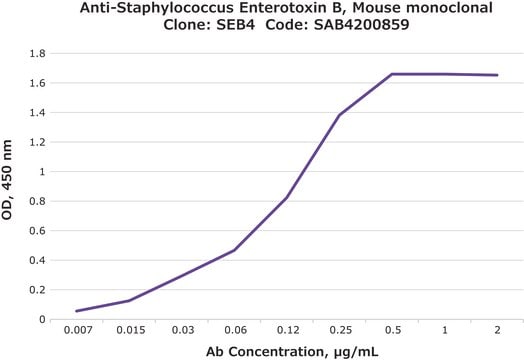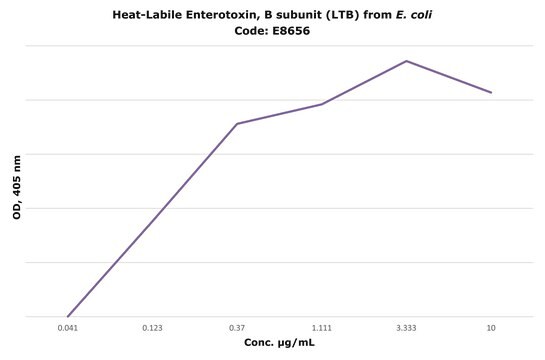T5662
Toxic shock syndrome toxin-1 from Staphylococcus aureus
Synonyma:
Staphylococcal Enterotoxin F, TSST-1
About This Item
Doporučené produkty
composition
Contains ~50% protein (Lowry); balance primarily sodium chloride and sodium phosphate buffer.
Quality Level
availability
not available in USA
solubility
H2O: soluble 0.50-0.60 mg/mL, clear to slightly hazy, colorless to faintly yellow
storage temp.
−20°C
Application
Biochem/physiol Actions
Preparation Note
signalword
Danger
hcodes
Hazard Classifications
Acute Tox. 2 Dermal - Acute Tox. 2 Inhalation - Acute Tox. 2 Oral
Storage Class
6.1A - Combustible acute toxic Cat. 1 and 2 / very toxic hazardous materials
wgk_germany
WGK 3
flash_point_f
Not applicable
flash_point_c
Not applicable
Osvědčení o analýze (COA)
Vyhledejte osvědčení Osvědčení o analýze (COA) zadáním čísla šarže/dávky těchto produktů. Čísla šarže a dávky lze nalézt na štítku produktu za slovy „Lot“ nebo „Batch“.
Již tento produkt vlastníte?
Dokumenty související s produkty, které jste v minulosti zakoupili, byly za účelem usnadnění shromážděny ve vaší Knihovně dokumentů.
Náš tým vědeckých pracovníků má zkušenosti ve všech oblastech výzkumu, včetně přírodních věd, materiálových věd, chemické syntézy, chromatografie, analytiky a mnoha dalších..
Obraťte se na technický servis.









